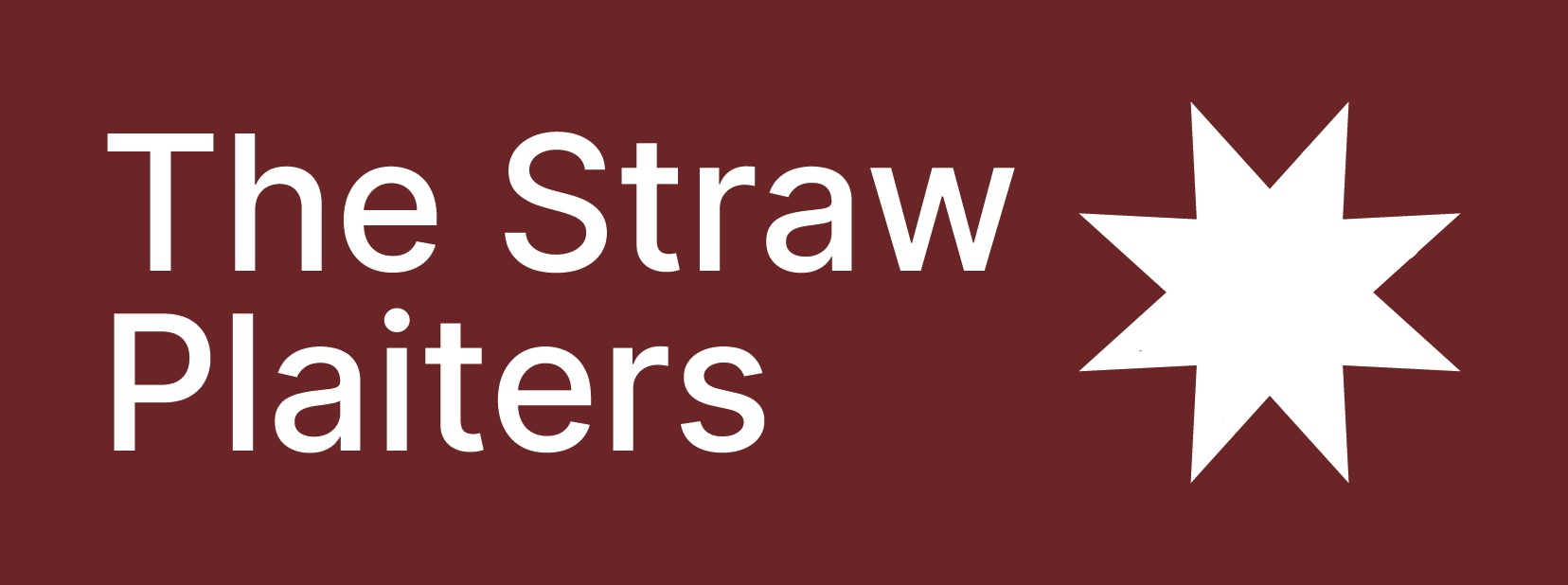James “Punch” McEwen

Born Bootle, Merseyside, 16th October 1872. “The Cricket and Football Field” reported in their 12th November 1892 edition that _“What is the Bootle team coming to when they are “coached” by a reserve man, as “Punch” McEwen did on Saturday.”
The former Bootle player came to Luton from Liverpool South End in the Summer of 1894. The Luton Town committee, which ran all aspects of the club, pursued Punch relentlessly as the minute book entries reveal. On 24th May 1894 the club committee wrote to McEwen offering £2 per week as follows – “35 shillings per week and 5 shillings each for each extra match. In the event of there not being enough extra matches to produce the above amount the same should be made up at the end of the season.”
The meeting of 31st May resolved “to grant McEwen a bonus of £5 to sign on within a week of our last meeting.”
The meeting of 8th June resolved that “Mr Arnold should wait [visit] upon McEwen should he not reply by Monday and if necessary increase the bonus to £10.”
14th June committee meeting – “Mr Arnold gave report of his visit to Liverpool which was considered very satisfactory and the best thanks of the committee was tendered to Mr Arnold for bringing the matter to so successful an issue.”
The club had their man and the Luton Times of 29th June 1894, below, announced his arrival at Dallow Lane.

The club committee meeting of the 17th September 1894 voted to appoint the captain for the season. 6 members voted for McCrindle and 6 for McEwen. That chairman’s casting vote went to McEwen. The meeting on the 8th October reversed the decision and agreed that “McCrindle captain the team until further notice.”

Punch, like many other players, met and married a Luton lass, in this case, Lizzie Nash Scott of Luton in late 1896. The CDV above shows them together. A collection at a game for his marriage raised £8 15s 8 3/4d and the committee made that sum up to £10. It was presented to Punch at the next committee meeting on the 2nd November 1896.
They made friends in Luton and below is Punch with fellow Straw Plaiters, William Gallagher seated, and John Finlayson standing. I believe this is photo was taken on the day of Finny’s wedding in 1896.
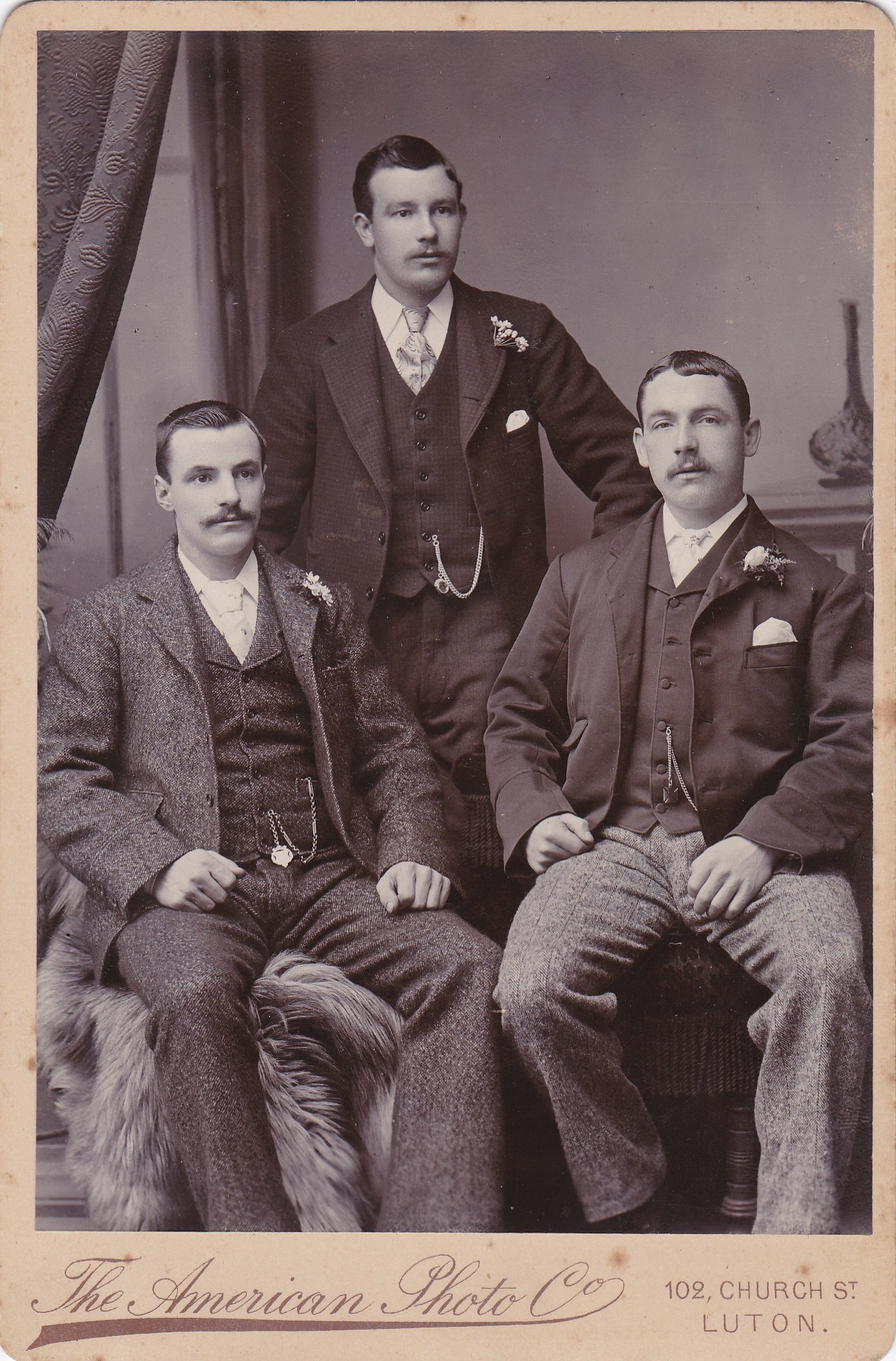

The Sketch of the 18th November 1896 carried the photo left and said that McEwen is;
“the best professional full-back in the South of England. More than that, he has some inferiors and few superiors in the North and Midlands. Although only a little man – he stands 5 ft. 6 in. – he is wonderfully powerful, and, for a dashing back, is unusually safe. McEwen has been with the club a number of years.”

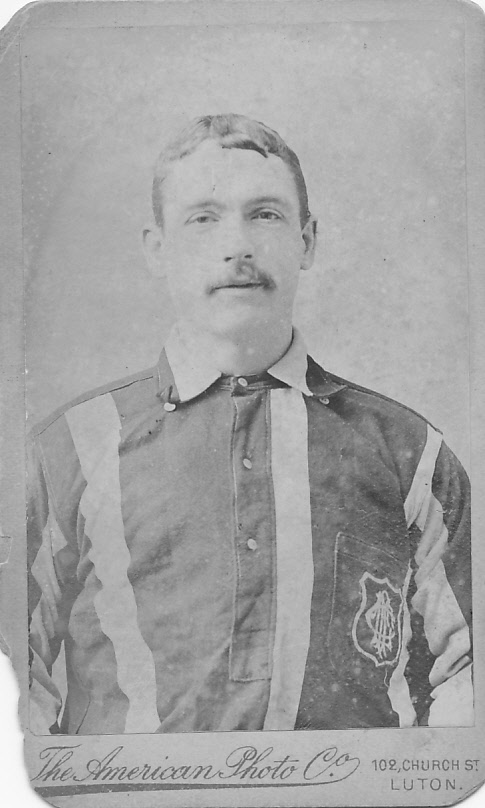
After playing 76 League and Cup games and 2 goals Punch moved on, to Glossop North End. The Luton News clips below from 30th December 1898 explains the reasons.




Glossop North End – Punch, wearing his “playing face,” is back row, extreme right. You can also see William Gallagher (front row second left) and Richard Williams, goalkeeper in cap.
He joined the F.A. Cup holders Bury. In 1901 Punch lived at 14 Brierley Street Bury with Lizzie and a son James William who was 3 and born in Luton on 9th July 1897 Punch’s occupation is described as “Professional footballer and general dock labourer.”
It was an inspired move as he was to help Bury to a second F.A. Cup win in 1903 over the hot favourites, Derby County. Punch was considered the man of match by many reporters. The following three clips are from the Athletic News (note only two players on the pitch are 6ft or above tall);




The drawing on the left is from the Sunderland Daily Echo.
His performance would live long in the memory of those at the game. Leslie Knighton, the Arsenal manager was interviewed by The Globe for their 6th March 1920 edition and recalled McEwen under the title of “Finals of the Past” –
“I think the most extraordinary of the lots was the Derby County debacle, when Bury buried them 6 goals to 0. ‘Punch’ McEwen, now my assistant here, played the outstanding game of the day at right-back.”
Of course, the Bury players were in great demand for photos after the astonishing 6 0 victory. Punch is in all three below.



Glory aside, Lizzie missed Luton so they came back to Strawopolis. The Athletic News of the 11th May 1903 below explains all.

He stayed at Luton much to the surprise of the press, the Lancashire Evening Post of the 10th September 1904 reported that-
“Punch” McEwen has preferred to remain at Luton. This fine little full back was lost to Bury last season but it was understood that arrangements were being made for his return. However, he is again playing with the Strawplaiters, and is in fact acting as captain.”
The Luton Times, below of 13th January 1905 discusses his lack of international recognition. ,

The Athletic News of the 3rd April 1905, below, gives us an excellent inside into the man.

The Luton News of the 25th December 1905 reveals that Punch had a greengrocers shop in Castle Street, Luton. His pony bolted, hurtled off, throwing the driver from the trap and colliding with a barrow. Luckily a P.C. Janes, who had much experience of this event, stopped the runaway horse before any further damage was done.
After 69 games for the Plaitopolis club in his second spell, Punch moved on, this time to Norwich City. The Lancashire Evening Post of the 3rd February 1906 kept tabs on Punch –
“A former Bury defender, who will have presumably revisited Lancashire to-day, is James McEwen, or ‘Punch,’ as he used to be called. It is said that he is playing with just the same sound judgment as he used to do, and that Norwich have in him a real treasure. Factors in his success with the Shakers were his quickness in grasping a situation and making up his mind on the course to be pursued, his accurate judgment in timing his efforts to secure possession and his clean kicking.”

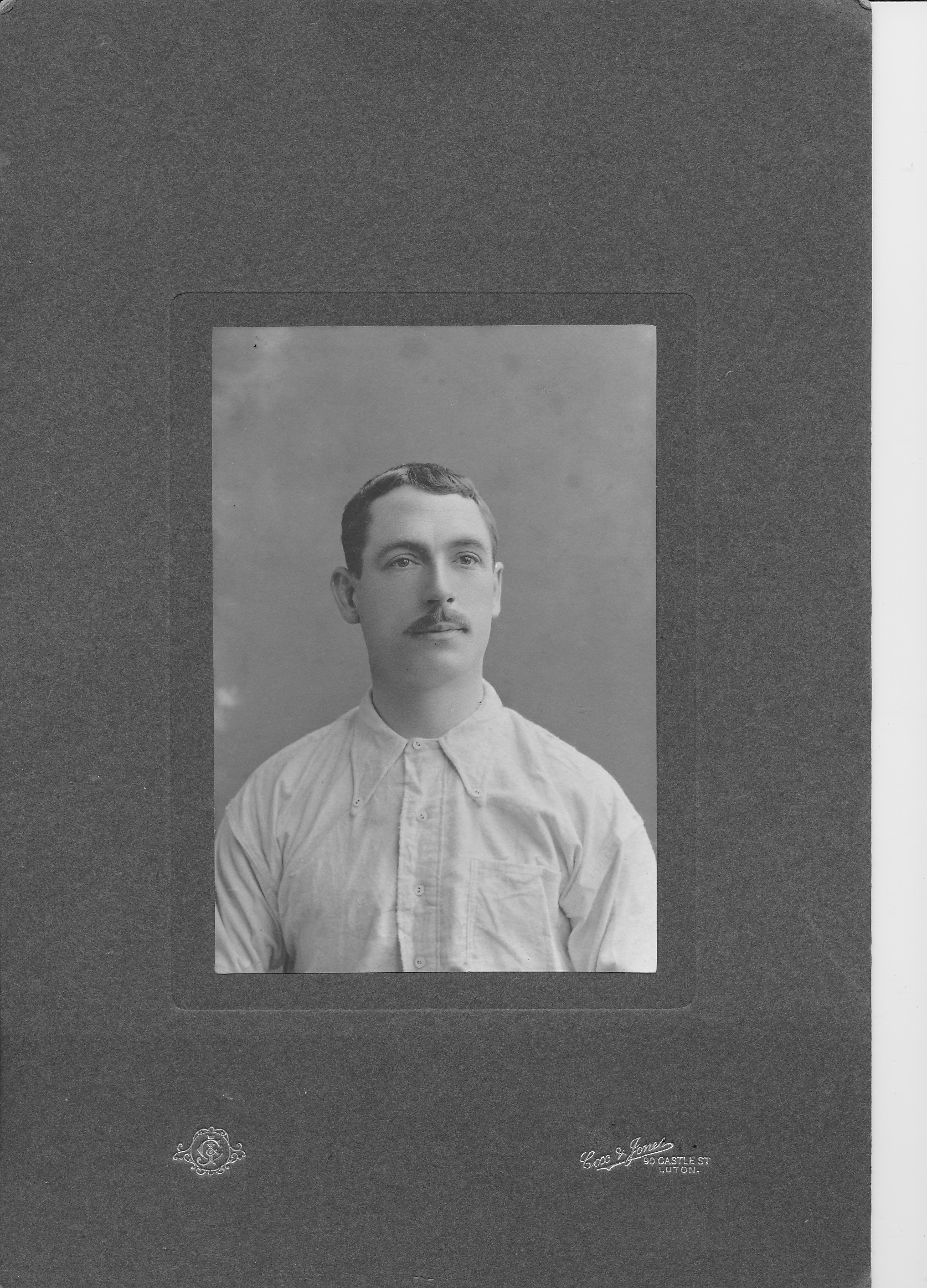
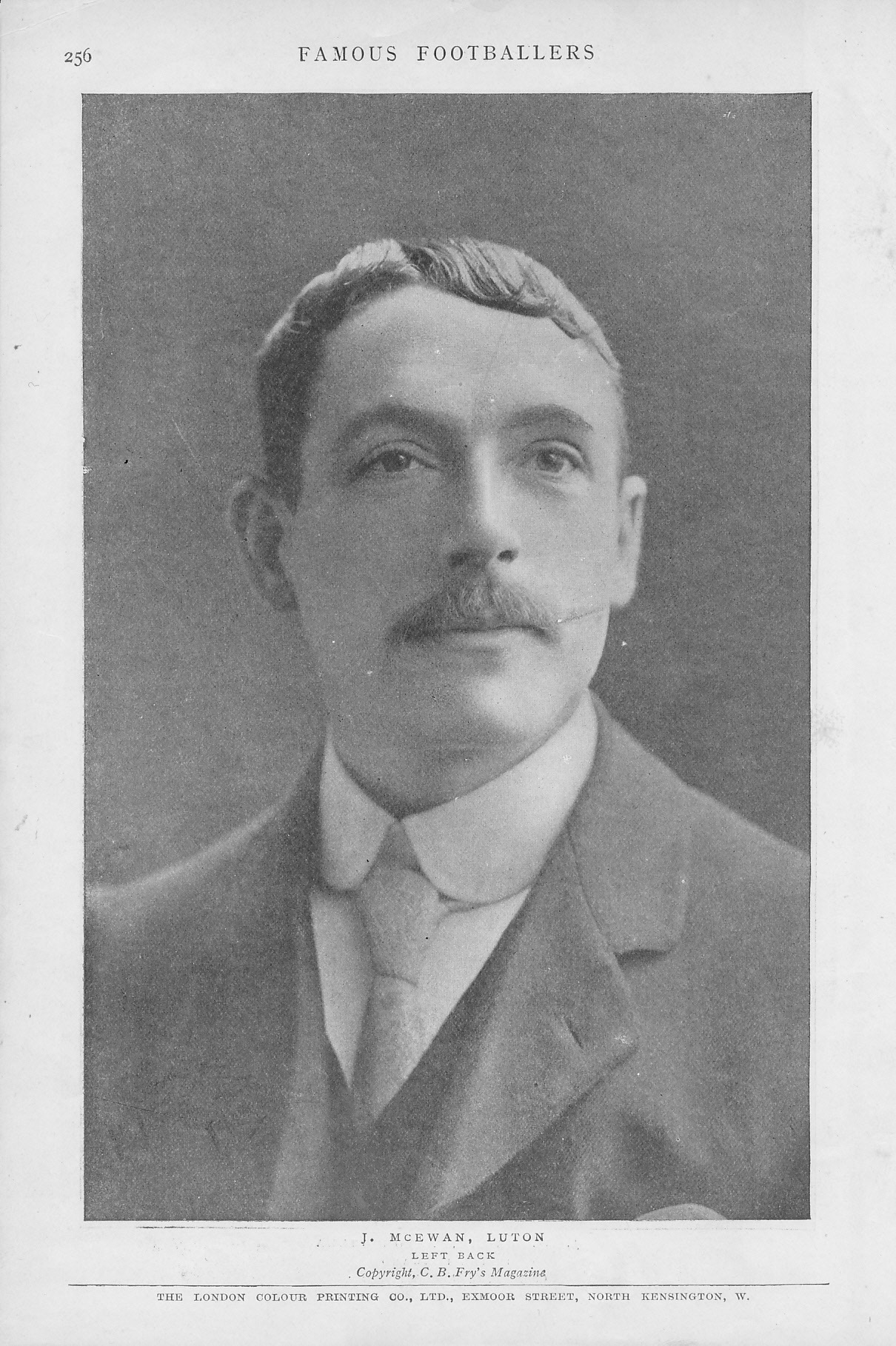
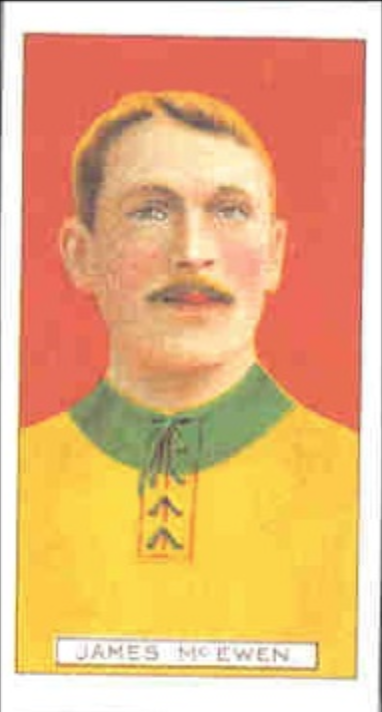 Punch played for and managed Norwich City in the 1907/08 season. His playing ability at last led to recognition of sorts. The Yorkshire Post of 28th January 1908 reported on a North v South International trial match
Punch played for and managed Norwich City in the 1907/08 season. His playing ability at last led to recognition of sorts. The Yorkshire Post of 28th January 1908 reported on a North v South International trial match
“At full back ‘Punch’ McEwen, though coming into this class of football late in his career, was as good as any of the quartette….”
He did not make the England team but Punch was one of the best full back never to represent his country.
He moved on yet again as the Shrewsbury Chronicle of the 27th November 1908 mentioned that the Norwich defence was weak now that they had lost Punch. The papers adds that “he will ever kick a ball for the East Anglian side again.”
The Lowestoft Journal of the 10th September 1910 reveals that Punch was in charge of Fulham Reserves when they played Norwich Reserves at “The Nest” –
“Punch” McEwen, an old Norwich favourite, was in charge of the visiting eleven.”
The Star Green ‘Un of the 30th August 1913 reveals that –
“During the close season, Mr ‘Punch’ McEwen refused the managership of the Glossop club, and since then has had under consideration a splendid coaching offer from one of the first class London clubs.”
Punch appears to have changed his mind as the Yorkshire Evening Post of the 28th February 1914 says –
“Mr James McEwen, popularly known as ‘Punch’ McEwen, has resigned his position as secretary-manager to the Glossop club. The decision has aroused considerable surprise in Association circles.”
Punch was the wartime Arsenal manager from April 1915 until April 1919.
He stayed with Arsenal in various capacities it appears. The Bury Free Press of the 25th February 1933 reveals his work as a scout –
“Another instance of the keenness with which Football League clubs are searching the country on the chance of spotting talent is shown by the fact that the Arsenal were represented by “”Punch” McEwen, formerly of Norwich City at the East Anglian Cup tie last Thursday between the C.E.Y.M.S. and Gorleston. He had come down especially from Highbury to see the match, but he must have been disappointed for the form was very moderate.”
 The Sunday Mirror of the 23rd July 1939 reveals another side to Punch’s talents. A film, “The Arsenal Stadium Mystery,” not only featured some of the clubs players but also Punch – photo left.
The Sunday Mirror of the 23rd July 1939 reveals another side to Punch’s talents. A film, “The Arsenal Stadium Mystery,” not only featured some of the clubs players but also Punch – photo left.
“Eddie Hapgood and Leslie Jones were particularly natural actors and so was Tom Whitaker, but the real ‘discovery’ of the picture was sixty-six-year old Punch McEwen, the Arsenal’s assistant trainer, who was left back for Bury when they rattled up that 6-0 win over Derby in the 1902-03 Cup Final.
Punch was so good that they wanted to feature him as a comedian, but his wife wanted to go on their holiday to Southend, so – they went to Southend.”
A still of Punch in the film is on the left but if you want to see him in the film then click here https://www.youtube.com/watch?v=QmX4BJGcEp8 and go to 7.40.
The Luton News of the 17th August 1939 was compiling an all time best team and discussed left back –
“I give it to ‘Punch’ for his lightening tackling and speed. He was about the quickest at lifting his foot off the ground who ever played in the game.”
The Luton News of the 14th September 1939 bumped into Punch while he was visiting Luton.

James “Punch” McEwen died on the 27th May 1942 while living at St. Annes Road, Barnes, London. He left £740 14s 5d to Lizzie in his will. Lizzie died in Barnes, Surrey on the 18th December 1957. She left £395 12s 3d to their son, James William McEwen who was then a plumber.
A great footballer, coach, manager, man, film star and, it seems, comedian.
